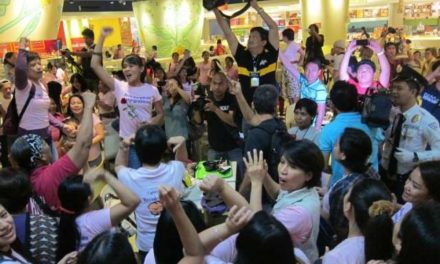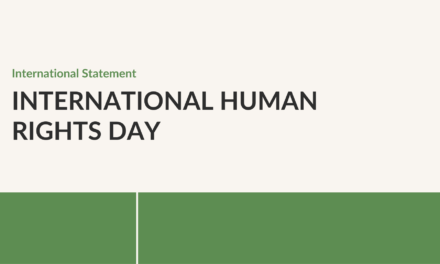by Walden Bello*
from INQUIRER.net
The 2010 campaign has drawn to a close, and it’s time to distill my experiences after registering hundreds of miles by land, sea, and air crisscrossing the country as a party-list candidate.
On the purely physical side, my shaking thousands of hands—I estimated some 3,500 in one two-hour period in the public market in Angeles, Pampanga—has apparently given my right arm a life of its own, like that of Dr. Strangelove or one of Jim Carrey’s characters. It twitches uncontrollably when not in action, as if waiting impatiently to be fed.
There is no doubt in my mind that Philippine democracy is alive. Everywhere I went, there was intense interest in the candidates, particularly the presidential candidates, with many pausing from their labors to inquire which presidential nominee I favored and what program my party Akbayan had to offer. Everywhere the courtship of the voter was intense. Gone are the days when the “command vote” for a candidate could be considered sufficient to deliver victory. Except in the remotest places, the “market vote” has increased in both size and decisiveness. The market vote is no statistical abstraction for candidates: In almost every municipality and city, it has become de rigueur for candidates to present and sell themselves in the public market, trying to shake every hand within reach, even the wet hands of fish and meat vendors embarrassed to extend them.
Most of the time, the cynics say, the people are at the mercy of the politicians. Maybe, but for at least three months every three years, the politicians are at the mercy of the voters.
Philippine democracy is alive, but is it well?
It is difficult to answer in the affirmative. The reason for this goes beyond the fact that come election day, scores will have been gunned down and huge sums will have been passed out to buy votes.
What worries me, more than the violence and the vote-buying, of which we will always have a good dosage of, is the skyrocketing cost of elections. P9 billion is now said to be a conservative estimate for a presidential run, and P1.1 billion for somebody running for the Senate is said to be a low figure. For a candidate for Congress, P450 million is definitely on the low side. Most of these sums are spent on media outreach, particularly television. One is tempted to say the media is king. It might be more appropriate to say that the market is king, since it is the demand for advertising space, in a system where there are few legal constraints on electoral spending on media exposure, that raises its price many times over in the course of the 12-week election period.
The need to raise enormous sums to have some impact on an expanding electorate has, of course, naturally strengthened the influence of the rich and those organizations favored by the rich over the electoral system. In this respect, Philippine electoral democracy is a spitting image of its parent, American democracy. In both, the influence of moneyed elites in shaping electoral outcomes is enormous. Candidates fit themselves to the interests of the rich and powerful when they do not themselves come from the ranks of the rich and powerful. In a very real sense, in both countries, elections function not so much as a means through which people choose their leaders but a mechanism whereby rival factions of the elite compete for possession of the state apparatus.
The Political Class on a Treadmill
There is a strong correlation between wealth and political power, but it is not perfect. There is a distinct political class, and in this campaign I truly learned the meaning of the saying that politics is a profession. While it usually does have other sources of wealth, like land, this class is extraordinarily dependent expanding its wealth, power, and status on the control and maintenance of political office.
For competing factions of this class, the positions of mayor, governor, and district congressman are critical offices to gain, and once one reaches the limit of three consecutive terms for each office, one feels compelled to run for another position or return to a previously held position. One cannot just vacate a position for which one can no longer run but ensure that a relative, preferably one’s spouse or offspring, fills it. Politics is truly a family affair in the worst sense of the term. The consequences of losing the hold of one’s family on a political office can be the beginning of decline, and eventually marginalization. The prospect of this loss of power, fortune, and prestige is what motivates families not to be satisfied with just having one position but to monopolize all the key positions—mayor, district congressman, party-list congressman, and governor. The best defense is offense, and family monopoly is best since political alliances based on short-term interests tend also to be short-term.
With almost no exception, this dynamics of dynastic succession repeated itself in almost every city and province I campaigned in. We are accustomed to condemning politicians seeking to keep everything in the family, but, in a sense, they are just as much trapped in a system as the rest of us in a system that encourages destructive dynastic politics.
Non-existent : the Policy Debate
The Villar camp made poverty the issue. But it was the Noynoy-Mar camp that hit the right note with the voters by claiming that corruption caused poverty. After nine years of unbridled corruption in Malacanang and deepening poverty among the masses, the popularity of the kung walang kurap, walang mahirap slogan was understandable.
The only problem is that while indeed corruption contributes to poverty, it is not the main cause of poverty, and the hegemony of the corruption discourse curing the campaign meant the avoidance of any substantive discussion of the key issues behind poverty and economic stagnation–among them, uncontrolled population growth, a debt service policy that has radically reduced funds for capital expenditures, trade liberalization that has devastated industry and agriculture, and the completion of the land reform program. Sure, some policy issues were discussed during the presidential debates, but these were often those, like education policy, that elicited the usual motherhood statements. And when a controversial policy issue could not be avoided, like the issue of reproductive health, most candidates threw principled but unpopular positions out the window.
One can, of course, understand the necessities of campaign rhetoric, but the danger is that campaign rhetoric might substitute for policy initiatives when the new administration comes to power. This would be a disaster since poverty will not be eliminated or reduced by moral crusades against corruption but by reversal of the anti-growth, anti-equity policies such as the debt service policy and trade liberalization.
Religious Diktat Subverts Democracy
During one of the meetings I had with community leaders, I asked a member of the Iglesia ni Cristo (INC) if the rank and file had influence on the selection of candidates to support. His response was curt: that was the prerogative of the Church leaders.
This was one of the incidents that revealed to me just how fragile the principle of the separation of church and state is in our democracy. All the presidential candidates fawned on the INC, with its five million votes and paid several visits to Pastor Quiboloy in Davao, who is said to command three million votes. Whoever Church patriarch Eduardo Manalo tells his sect to vote for is law, and the same is said to be true of Quiboloy. The danger to democracy becomes very apparent when elections are closely contested, which is the case for the current race for vice president. The dictatorial bloc voting of the INC and Quiboloy could end up determining who wins the vice presidency, thus subverting electoral democracy, which rests on the principle of choice of the individual sovereign citizen.
As in every dictatorship, authoritarian control spawns collateral abuses. For instance, in one Bulacan municipality, residents allege that local Iglesia leaders sold the promise of bloc votes to local candidates, something that is said to be prohibited by the Church leadership but which occurs nevertheless since the penalties are relatively light.
But it is not only the INC and Quiboloy’s Kingdom Nation that pose a threat to the principle of the separation of Church and State. The Catholic Bishops’ Conference of the Philippines encouraged voters to vote against proponents of the Reproductive Health Bill, wrongly and maliciously accusing them of promoting abortion. The question is not so much the people, which surveys reveal to be in favor of artificial contraceptives like condoms for fertility control, but the politicians, who pander to the Church hierarchy, thinking they still exert strong influence over the opinions of the laity. This is a big myth, and the sooner the politicians see the hollow threat behind the bishops’ pronouncements on matters of individual choice, the better for all of us. With its veto over reproductive rights, the Catholic hierarchy has now become one of the biggest blocks to women’s health, poverty alleviation, and environmental protection.
The Party-List Fiasco
When I mentioned during our innumerable sorties in public markets that I was running for the House of Representatives under the party-list system, I would often be met with a quizzical look. So I can confirm first hand what the surveys have consistently shown: that up to 75 per cent of voters are not aware of the party-list system or how it works.
This dismal state of affairs is not surprising since so few resources have been spent educating the voters about the party-list system that the chairman of the Comelec, Jose Melo, himself has admitted that he did not understand it.
Yet the Comelec is not the only institution responsible.
The framers of the 1987 Constitution appeared to have two related ideas when coming up with the party-list system. One was to give an avenue for the articulation of the voices of marginalized groups that could not prosper under the money-intensive elections for district congressman. The other was to encourage the formation of such parties for the politically marginalized on a nationwide basis. So for 20 per cent of the seats in the House, elections were to be held not on the basis of the first-past-the-post, plurality- winner-take-all system, but on proportional representation.
The idea was excellent, except that a clear definition of a marginalized group was never really made by the framers of the Constitution or by the party-list law. Many party-list groups that formed indeed represented marginalized groups, but the political class saw in the ambiguity of the concept of marginalized group a new avenue to get to the House. From the very beginning, the number of participating parties claiming to represent all sorts of “marginalized groups” was large: 123 in the 1998 elections and 162 in 2001. This election, the size of the ballot—25 inches—was determined by the need to accommodate 187 competing groups.
Malacanang also saw the system as a way of ensuring its control of the House, so in the last few years, it has informally sponsored and funded all sorts of parties claiming to represent marginalized groups, from balut vendors, tricycle drivers, and security guards, to ethnic minorities, and regional ethnic groups. It has been conservatively estimated that at least 45 of this year’s participating groups are “pakawala” or agents of Malacanang, their purpose being to ensure that the president, who is running for the second district of Pampanga, becomes the Speaker of the 15th Congress.
Perhaps the nadir of the party list system was reached two days before the May 10 elections when the Comelec ruled that presidential son Mikey Arroyo could run as a representative of security guards under the party Ang Galing Pinoy even with overwhelming evidence that he had no historic links to the sector whatsoever.
In Sum…
These considerations could lead to the conclusion that the balance of trends in Philippine democracy is negative. However, if one factors in the fact that the Automated Election System (AES) has worked, despite many glitches, the balance, in my view, is positive. Perfected in elections to come, the AES will hopefully reduce poll irregularities significantly.
Yet the disturbing trends we have pointed out cast their long shadow on our democracy. If unchecked, they will definitely destabilize further an already gravely flawed system of governance.
*Inq7 columnist Walden Bello is a member of the House of Representatives representing the party-lost Akbayan.









